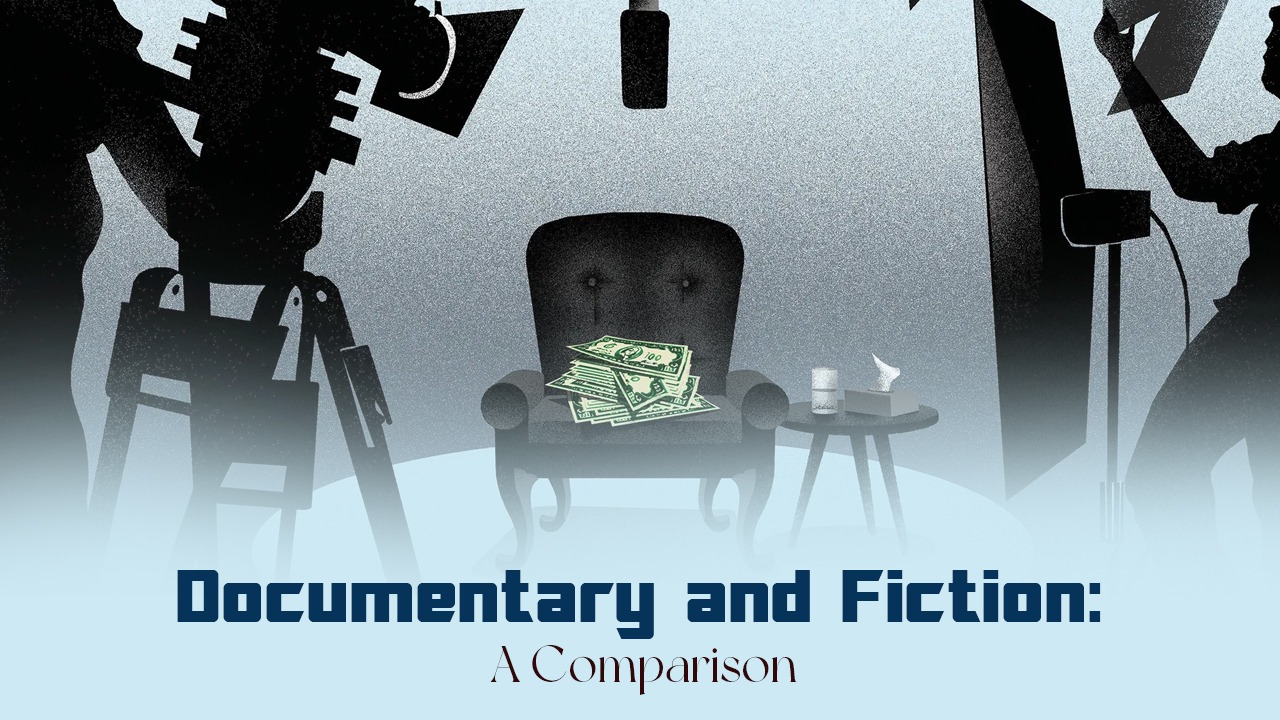Documentaries and fiction serve different purposes and have distinct strengths in addressing different types of problems or issues.
Documentaries:
1. Authenticity and Realism: Documentaries have the power to present real-life stories, events, and issues with a high level of authenticity and realism. They can provide firsthand accounts, interviews, and real footage, which can create a stronger connection with the audience.
2. Raising Awareness: Documentaries excel in raising awareness about social, political, environmental, or cultural issues. By presenting factual information, interviews, and evidence, they can educate viewers and shed light on topics that may be unfamiliar or overlooked.
3. Advocacy and Social Change: Documentaries often aim to advocate for a cause or bring about social change. By exposing injustices, highlighting problems, and presenting different perspectives, documentaries can inspire viewers to take action or reconsider their beliefs.
4. Education and Informative: Documentaries can provide in-depth analysis and explanations of complex subjects. They can delve into historical events, scientific discoveries, or cultural phenomena, offering educational value to viewers.
5. Objective Examination: Documentaries often strive to present a balanced and objective examination of a particular subject or issue. They aim to provide an accurate representation of events, facts, and viewpoints, allowing viewers to form their own opinions based on the presented information.
6. Investigative Journalism: Documentaries can delve deep into investigative journalism, uncovering hidden truths, exposing corruption, or revealing untold stories. They have the potential to bring important issues to light and hold individuals, organizations, or governments accountable.
7. Archiving and Preservation: Documentaries play a crucial role in archiving and preserving historical events, cultures, and testimonies. They capture moments in time and provide a valuable record for future generations, ensuring that certain stories or aspects of human history are not forgotten.
Fiction:
1. Emotional Impact and Empathy: Fictional stories have the power to evoke strong emotions and create empathy by immersing viewers in compelling narratives. They can develop relatable characters and explore their motivations, struggles, and triumphs, allowing the audience to connect on an emotional level.
2. Entertainment and Escapism: Fiction offers entertainment and escapism, providing a break from reality and allowing viewers to enter imaginative worlds. It can transport audiences to different times, places, or even fantastical realms, offering enjoyment and a temporary diversion from real-life problems.
3. Exploring Hypothetical Scenarios: Fiction can explore hypothetical scenarios, alternative histories, or speculative futures. It allows storytellers to examine "what if" situations, tackle complex moral dilemmas, or explore the consequences of certain actions, stimulating critical thinking and philosophical discussions.
4. Creativity and Artistic Expression: Fictional works are a product of creative imagination and artistic expression. They allow writers, directors, and actors to showcase their talents and bring unique visions to life. Fiction can challenge conventions, experiment with storytelling techniques, and inspire new ideas.
5. Imagination and Symbolism: Fictional stories allow for the exploration of abstract concepts, symbolism, and metaphor. They can tackle complex themes and ideas through creative storytelling techniques, enabling viewers to engage with deeper layers of meaning.
6. Character Development and Arcs: Fiction provides the opportunity to develop multi-dimensional characters with intricate arcs and growth trajectories. Through the portrayal of fictional characters, filmmakers can depict personal struggles, transformations, and the human condition, fostering empathy and introspection.
7. Creative Interpretation: Fiction allows for creative interpretation of reality, enabling filmmakers to infuse their work with their own perspectives, artistic styles, and unique visions. It gives them the freedom to experiment with narrative structures, visual aesthetics, and storytelling techniques to create impactful and thought-provoking experiences.
Ultimately, documentaries and fiction serve different purposes and cater to different aspects of storytelling. Documentaries aim to inform, raise awareness, and advocate for change by presenting real-life events and issues, while fiction utilizes imaginative storytelling, emotions, and creativity to entertain, inspire, and explore deeper themes and concepts. Both genres have their own strengths and can make significant contributions to the world of storytelling and filmmaking. While documentaries excel in presenting real-life issues and advocating for change, fiction can engage viewers emotionally, entertain, and explore imaginative concepts. Both genres have their own merits and can contribute to addressing different types of problems or connecting with audiences in different ways.

Comments